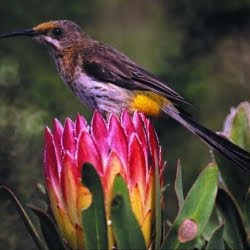
The earth’s biological wealth or biological diversity is the entire complement of life that has survived nearly 4 billion years of evolution. However, in recent times, the ever-increasing loss of this biological wealth has posed serious threat to the very existence of mankind. The prevailing illiteracy, poverty, lack of scientific development, burgeoning population etc. are some of the factors responsible for the degeneration of biodiversity. In the last half billion years of the history of earth’s life, five great episodes of extinction have already decimated a variety of living organisms including the mammoth dinosaurs. The first was in the Ordovician period 448, second Devonian 365, third Permian 286, and fourth Triassic 210 and fifth in cretaceous period 66 million years ago.
The first four episodes of extinction are believed to have been caused by climatic change and the fifth by a giant meteorite crash. The sixth extinction, which we are facing today, is due to human activities. Scientists have estimated that human activities are likely to eliminate approximately 10 million species by the middle of this century. Tropical rain forests, known as the "lungs of the earth", are the storehouse of biodiversity covering only 7% of the earth’s geographical area but supporting more than half of the world’s identified species. Tropical forest cover is being lost at the rate of about 0.16 billion hectare per decade. Twelve rain forests and eight wilderness areas of the world have been identified as hot spots.
If rational conservation measures are not undertaken soon, 90% of these habitats could be destroyed in the near future. This would amount to a potential loss of 15,000 to 50,000 species every year or 50 to 150 species every day. All over the world, about 60,000 species of plants and 2000 species of animals are on verge of extinction. This includes fishes (343), amphibians (50), reptiles (170), invertebrates (1355), birds (1037) and mammals (497).This disappearance of species also means a reduction of genes from the gene pool. This reduction in the genetic resources of the Earth is known as genetic erosion. The twentieth century has witnessed a loss of 75% of crop plants. High yielding varieties have occupied more than 60%area of wheat and rice lands. .
The first four episodes of extinction are believed to have been caused by climatic change and the fifth by a giant meteorite crash. The sixth extinction, which we are facing today, is due to human activities. Scientists have estimated that human activities are likely to eliminate approximately 10 million species by the middle of this century. Tropical rain forests, known as the "lungs of the earth", are the storehouse of biodiversity covering only 7% of the earth’s geographical area but supporting more than half of the world’s identified species. Tropical forest cover is being lost at the rate of about 0.16 billion hectare per decade. Twelve rain forests and eight wilderness areas of the world have been identified as hot spots.
If rational conservation measures are not undertaken soon, 90% of these habitats could be destroyed in the near future. This would amount to a potential loss of 15,000 to 50,000 species every year or 50 to 150 species every day. All over the world, about 60,000 species of plants and 2000 species of animals are on verge of extinction. This includes fishes (343), amphibians (50), reptiles (170), invertebrates (1355), birds (1037) and mammals (497).This disappearance of species also means a reduction of genes from the gene pool. This reduction in the genetic resources of the Earth is known as genetic erosion. The twentieth century has witnessed a loss of 75% of crop plants. High yielding varieties have occupied more than 60%area of wheat and rice lands. .

No comments:
Post a Comment